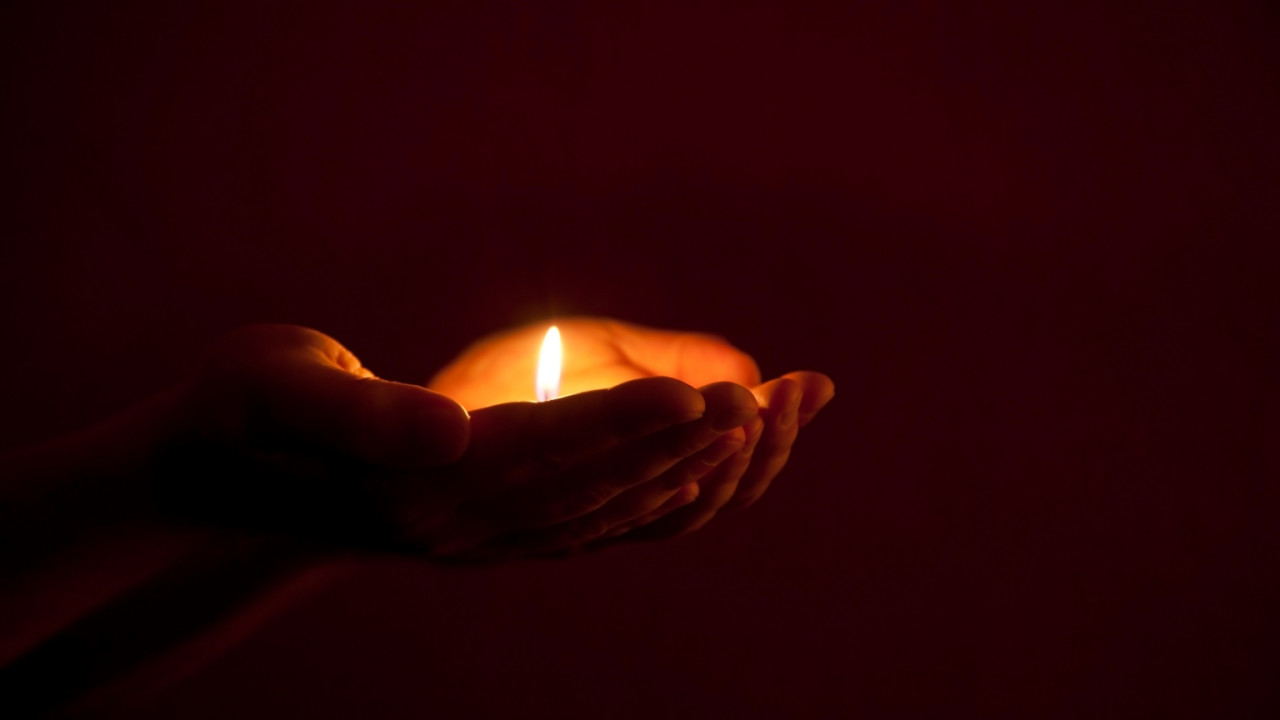At a time of rising tensions in India following the April 22 terror attack in Pahalgam, several voices of peace and reason deserve wider attention.
Even though some persons may be committed to peace in normal times, when they suffer a big person tragedy in the form of violence against a family member they can at least temporarily start speaking more in terms of anger and revenge. This is why it is important why we all have to learn so much from the family of naval officer Lt Narwal who was among those who died in the terror attack of Pahalgam. Soon after the tragedy his family somehow found the strength to organize a blood donation camp on the birthday of Lt Narwal on May 1.
No one could possibly have suffered greater distress and shock than his newly married wife Himanshi (the couple were married just a week back and were on a honeymoon trip to Jammu and Kashmir when the terrorists struck). Yet she has been speaking only in terms of peace. Speaking at the blood donation camp she appealed to people not to spread hatred against anyone. She urged the people not to go against Muslims and Kashmiris. She said, “We just want peace. No doubt we desire justice, the government must take steps against specifically those who did us wrong.” (See report in The Times of India, May 2 by Bhavya Narang titled ‘Eschew hate, pray for Lt Narwal, says his wife’).
People from all over the country who had gathered at this camp organised in Karnal to donate their blood to save human lives, were moved to tears by the words and gestures of various family members of Lt Narwal, their grace and dignity, their deep concern for peace and harmony even in the middle of great personal loss. All people committed to peace salute them and feel inspired by them. Humanity will win despite all obstacles if there are more people like them. They provide a highly inspiring example of true commitment to real patriotism and national unity.
Another report in the same issue of The Times of India also deserves our attention. This report titled ‘Despite war clouds, life remains calm in Punjab border villages’ has been filed by Yudhvir Rana from some border villages located on the India side of the border of India and Pakistan in Tarn Taran area. This report tells us about farmers and villagers going about their daily chores in relatively tension-free conditions.
To quote from this report, “The villagers expressed frustration at the portrayal of their region as a powder keg. ‘We only hear about this so-called ‘tension’ from our relatives who call us after watching the news, said Manjinder Singh, a farmer from Naushera Dhalla. “They think war is about to break out, but here we are, going about our daily chores.” In this village, where a gurudwara and temple co-exist in a single complex, people say that the only extra instruction they have received is to ensure timely harvesting of wheat in some fields, probably to maintain clearer visibility.
This provides a fine example of the ability of common people to maintain calm and avoid unnecessary panic, a tendency that can be contrasted by the efforts of some other kinds of persons to deliberately inflate tensions.
Here attention may be drawn also to an article written by Lt Gen Harwant Singh (Retd) published in The Tribune, May 2 titled ‘Avoid strike against Pakistan, It could escalate into war.” While condemning Pakistan’s numerous attempts to inflict ‘a thousand cuts’ on India using terror attacks, the learned writer has cautioned, “ Any enhanced action by India across the border has its own implications, with the possibility of an escalation of the conflict into a war-like situation or, may be, war itself. Given the situation, India’s better option is to further secure its borders with Pakistan and be prepared to effectively deal with any mischief by Pakistan across the IB or the LOC.”
Another voice that needs to be heard more widely is that of Julio Ribeiro, the former police chief who played a very important role in defeating terrorist violence in Punjab in the past. In an article titled ‘Win over locals to combat terror’, published in The Tribune dated May 2, he has written, “Local residents are central and crucial to policing even in normal times. In terrorism-affected states, they spell the difference between life and death…The importance of treating locals with the respect and dignity which every human being expects and entitled to is highlighted during times of terror activities. When they feel that they are part and parcel of the government’s fight against terrorism, they will part with the crucial information needed to plan defensive measures.”
Julio Ribeiro has advised the government strongly against steps like demolishing the houses of suspected terrorists. Instead he has stated, “What it urgently needs is to replace the muscular philosophy of policing with the age-old conclusion of experts that the only way to end terrorism is to win the hearts and minds of the community to which the terrorists belong.”
(The author is Honorary Convener, Campaign to Save Earth Now. His recent books include Protecting Earth for Children, Man over Machine, A Day in 2071 and When the Two Streams Met)
Related:
Terrorism’s Shadow: Rising hatred against Indian Muslims after Pahalgam terror attack
